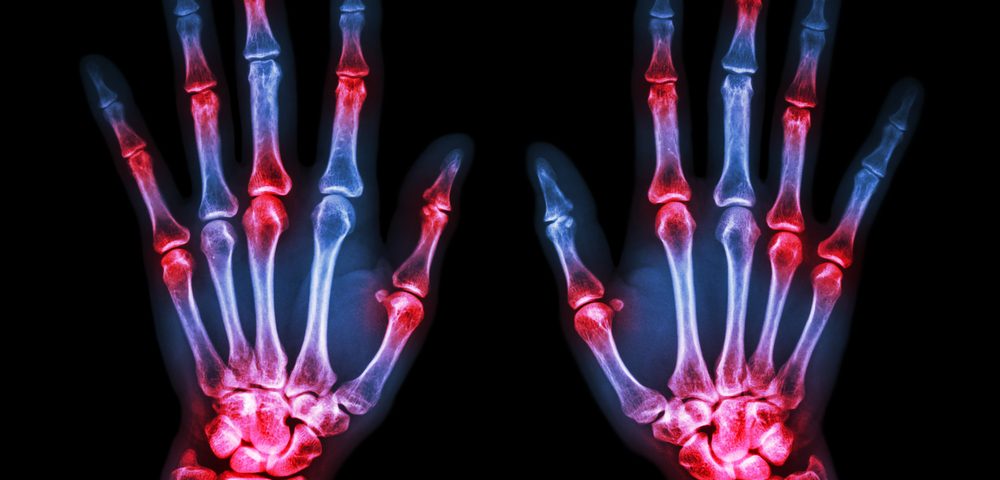Patients who take the immune checkpoint inhibitors nivolumab (Opdivo) or ipilimumab (Yervoy) may be at a higher risk of developing rheumatologic diseases, characterized by increased inflammation in the joints and soft tissue.
The study, conducted by Johns Hopkins Medicine researchers, was titled “Inflammatory arthritis and sicca syndrome induced by nivolumab and ipilimumab” and published in Annals of the Rheumatic Diseases. It presented case reports on 13 cancer patients who were taking the immunotherapy drugs and developed arthritis or sicca syndrome, suggesting an association.
“I don’t think anyone is particularly surprised that rheumatologic disorders might be a complication of drugs that boost the immune system,” the study’s first author, Laura C. Cappelli, MD, a rheumatologist at the Johns Hopkins University School of Medicine, said in a press release.
Cappelli said that even in this small a sample size, this is the largest case series addressing a possible link between the diseases and the immunotherapeutic drugs.
Patients who developed rheumatologic disorders represented 1.3 percent of the patients treated with at least one of the drugs at the Johns Hopkins Hospital from 2012 to 2016. But it is likely an underestimation since most patients with mild symptoms or with advanced-stage cancers may not be referred to the rheumatology clinic.
“In 2015, our rheumatology clinic started getting more and more referrals from our oncology department to evaluate patients treated with immunotherapies,” Cappelli said. “And the patients we saw had very severe, highly inflammatory arthritis. They needed even higher doses of steroids to control their symptoms compared to what is needed in other forms of inflammatory arthritis, like rheumatoid arthritis.”
Ipilimumab and nivolumab are monoclonal antibodies that target the immune checkpoint molecules CTLA-4 and PD-1, respectively. The drugs function by removing the breaks on the immune cells, which allows them to effectively target and kill cancer cells. However, the entire immune system becomes highly activated, resulting in immune-related side effects, including the development of autoimmune diseases.
Clinical trials of nivolumab and ipilimumab were found to increase the risk of a number of diseases, including lung inflammation, inflammatory bowel disease, autoimmune thyroid disease, and pituitary gland inflammation. However, the primary goal of such trials was to address the drugs’ efficacy against cancer, and so their rheumatologic side effects were not addressed.
The team identified 13 patients without prior rheumatologic symptoms who developed rheumatologic diseases following a combination of ipilimumab and nivolumab therapy (62 percent) or monotherapy with one of the drugs (38 percent). Patients had been treated for non-small cell lung cancer, melanoma, small cell lung cancer, or renal carcinoma.
Among these patients, nine were diagnosed with inflammatory arthritis and four developed sicca syndrome, a set of autoimmune diseases that causes dry mouth and eyes. Although not all were eliminated, many of their rheumatologic symptoms were effectively controlled with treatment.
The researchers hope their case report raises awareness in patients and doctors about the possible side effects of immunotherapies.
“It is important when weighing the risk-benefit ratio of prescribing these drugs,” Cappelli said. “And it’s important for people to be on the lookout for symptoms so they can see a rheumatologist early in an effort to prevent or limit joint damage.”


